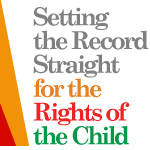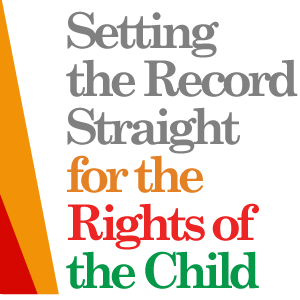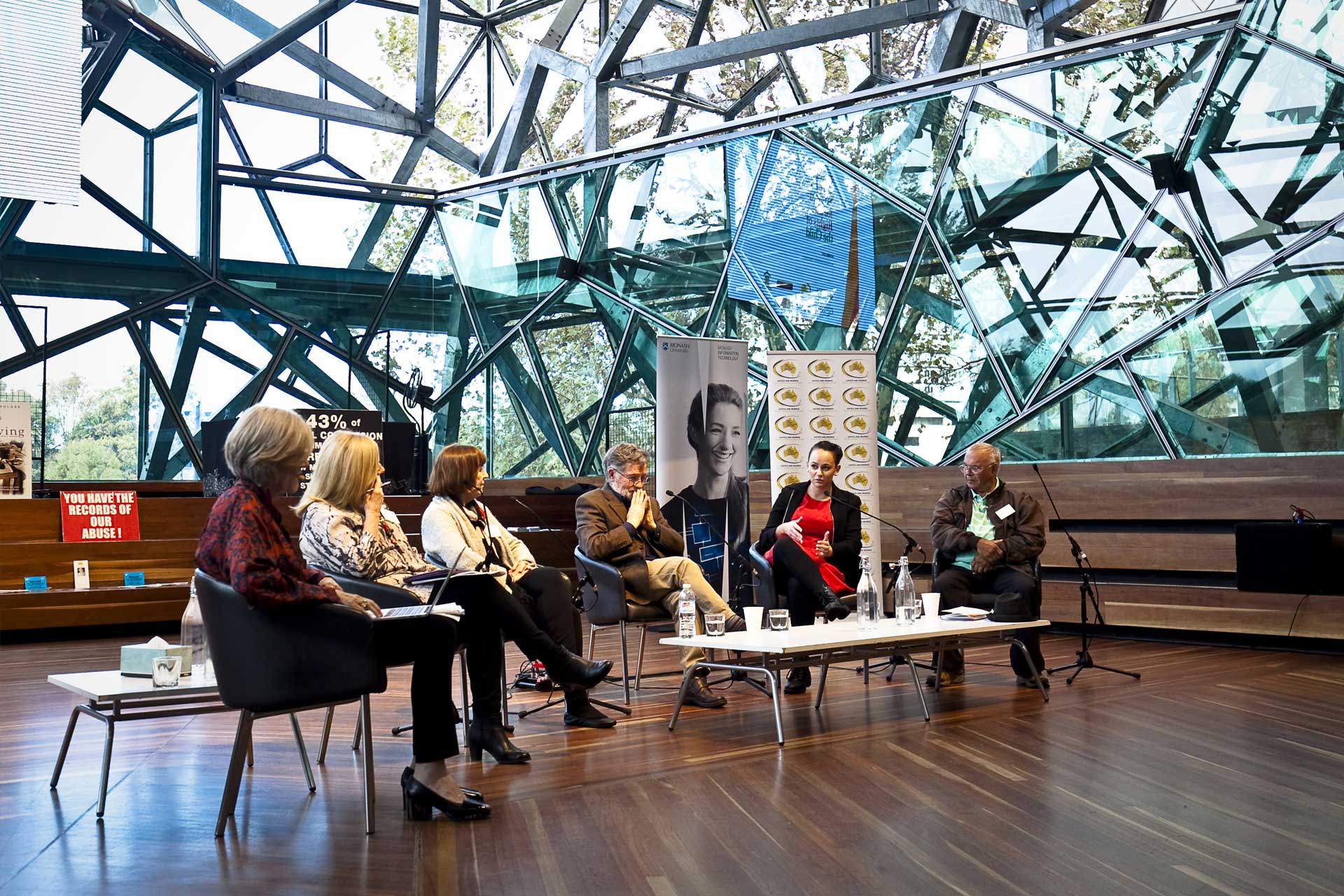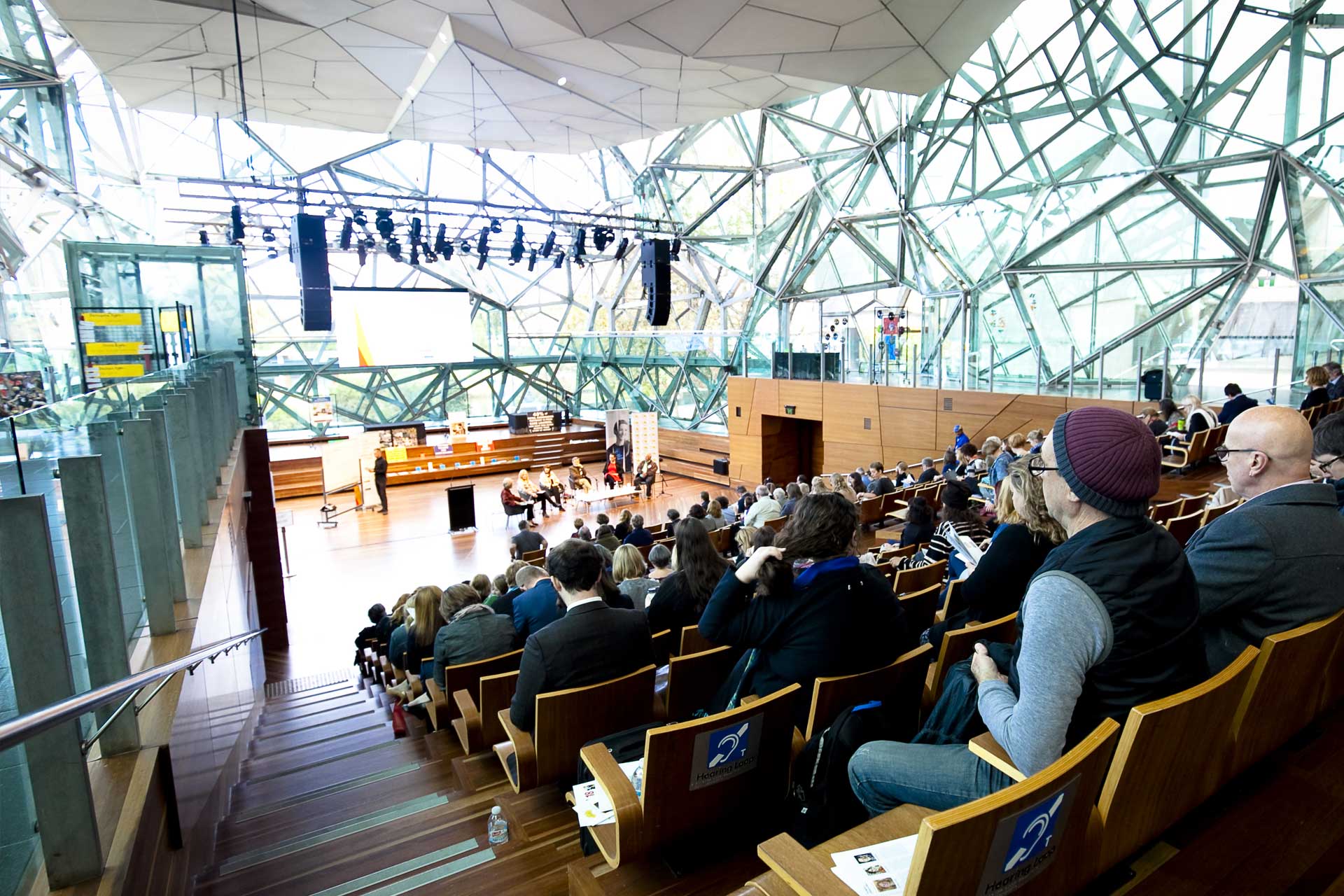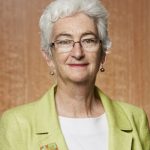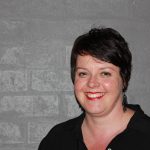

Lisa Alonso Love and Greg Wells
Lisa Alonso Love and Greg Wells are the Program Directors for ChildStory. ChildStory is a program within Family and Community Services in NSW. ChildStory is much more than just a casework management IT system. ChildStory will allow everyone involved in a child’s life to easily contribute to the child’s online records. And importantly, the child or young person, depending on their age, will have direct access to their own record and, if they have a FACS caseworker, a convenient way to contact their caseworker and be more involved in the development of their own case plan.
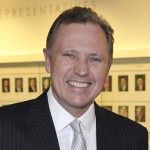
Dr Brian Babington
Dr Brian Babington has worked for over three decades for stronger communities and families in Australia and developing countries, particularly in Asia. He is the CEO of Families Australia, a national, not-for-profit peak body that advises the Australian Parliament and Government on family and child wellbeing. He plays leadership roles in numerous national and international bodies, including as convenor of the National Coalition on Child Safety and Wellbeing and as a director of an international child rights organisation, Plan International. His doctorate focused on orphanages in Indonesia.
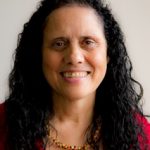
Muriel Bamblett
Muriel Bamblett is a Yorta Yorta and Dja Dja Wurrung woman who has been employed as the Chief Executive Officer of the Victorian Aboriginal Child Care Agency since 1999. Muriel was Chairperson of the Secretariat of National Aboriginal and Islander Child Care for 10 years (the peak agency representing Indigenous Child and Family Services nationally) and was awarded a Lifetime Associate Membership of SNAICC. Muriel is active on many boards and committees concerning children, families and the Indigenous community. These include the Victorian Children’s Council; Victorian Taskforce 1000 Steering Committee; the Aboriginal Treaty Interim Working Group; the Indigenous Family Violence Partnership Forum and the Aboriginal Justice Forum. Muriel is on a number of Ministerial Advisory Groups, including for Aboriginal Affairs; and for Roadmap Implementation. Muriel is a Board Member of the Aboriginal Community Elders Service. Muriel has been the recipient of a number of awards, including the Centenary of Federation Medal; the 2003 Robin Clark Memorial Award for Inspirational Leadership in the Field of Child and Family Welfare; the Women’s Electoral Lobby Inaugural Vida Goldstein Award; and in 2011, was inducted into the 2011 Victorian Honour Roll of Women and was a finalist for a Human Rights Medal with the Australian Human Rights Commission. Muriel was awarded a Member of the Order of Australia in the 2004 Australia Day Honours for her services to the community, particularly through leadership in the provision of services for Aboriginal and Torres Strait Islander children and families. In 2009, she was appointed by La Trobe University as an Adjunct Professor in the School of Social Work and Social Policy within the Faculty of Health Sciences.
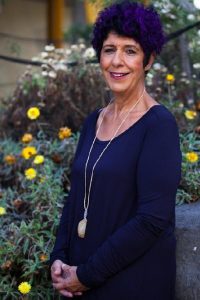
Arweet (Elder) Carolyn Briggs
Carolyn is a Boon Wurrung senior elder and the chairperson and founder of the Boon Wurrung Foundation. A descendant of the First People of Melbourne, the Yallukit Willam clan of the Boon Wurrung, she is the great-granddaughter of Louisa Briggs, a Boon Wurrung woman, born near Melbourne in the 1830’s. In 2005, Carolyn established the Boon Wurrung Foundation, which has been responsible for significant work in cultural research, including the restoration of the Boon Wurrung language and the promotion and maintenance of Boon Wurrung culture and heritage. The Foundation also helps connect Aboriginal youth to their heritage. Carolyn has worked across numerous communities for over 30 years and is currently completing her PhD researching assisting urban Indigenous youth to understand Indigenous knowledge. She is the author of Journey Cycles of the Boon Wurrung: Stories with Boonwurrung Language.
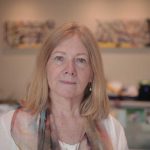
Caroline Carroll
Caroline Carroll is the Community Education Coordinator at Open Place, the Victorian support service for Forgotten Australians. Caroline spent her childhood in many institutional and foster care placements. In these placements she experienced a range of abuses. She was separated as an infant (14 months) from her family (including her seven siblings).At the age of 15 Caroline was left to fend for herself! Caroline is the Chair of the national peak body, the Alliance for Forgotten Australians (AFA). Caroline has made a number of presentations at conferences and has sat on a number of reference groups for National projects that the Australian government has undertaken: National History Projects, Find and Connect and Aged Care Education, and currently is on the Commonwealth Redress Advisory Council.
Justice Jennifer Coate
Her Honour, Justice Jennifer Coate is a Justice of the Family Court of Australia and Commissioner of the Royal Commission into Institutional Responses to Child Sexual Abuse. Justice Coate was appointed on 31 January 2013. Her Honour has worked as a solicitor in private practice, for the Legal Aid Commission of Victoria and in Policy and research for the Victorian Government. In 1992 Justice Coate was appointed as a Magistrate and thereafter appointed as a Senior Magistrate of the Children’s Court in 1995. In September 1996 she was appointed as Deputy Chief Magistrate. In 2000, she was appointed as a Judge of the County Court and the inaugural President of the Children’s Court of Victoria and was then appointed as the State Coroner of Victoria in November, 2007.
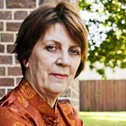
Bonney Djuric
Bonney Djuric, is an artist, author, activist and founder of Parragirls. In 2012 she established the Parramatta Female Factory Precinct Memory Project, with the aim to support Parragirls to document their stories and preserve the Girls Home and adjacent Female Factory as Australia’s first Site of Conscience. Since 2004 she has devoted herself to the collection and documentation of historic records pertaining to these institutional sites from colonial times to the present day and in 2011 was first to nominate the Parramatta Female Factory Precinct for inclusion on the National Heritage List.
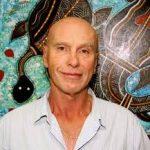
John Dommett
John Dommett is the non-Indigenous chair of the National Stolen Generations Alliance. He is also the developer and CEO of Connecting Home, a Victorian organisation that provides essential human services as well as links between Aboriginal people of the Stolen Generations and the families and communities they were often forcibly taken from as children.
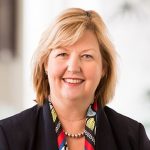
Professor Susan Elliott
Professor Susan Elliott joined Monash University in March 2017 from The University of Melbourne where she held the position of Deputy Provost and Deputy Vice-Chancellor (International). In addition to Professor Elliott’s responsibilities for international engagement and development, she was also credited with the renewed direction of equity programs, increasing the number of students from disadvantaged backgrounds and reshaping The University of Melbourne’s scholarship program. Professor Elliott is a Fellow of the Royal Australasian College of Physicians, and her many appointments on national and international committees include President of the Asia Pacific Association for International Education (APAIE) – the first Australian and first female academic to be elected to the position. She is a member of the Asia Pacific Rim Universities (APRU) International Policy Advisory Committee and also serves as a Board member for the Australia India Institute.
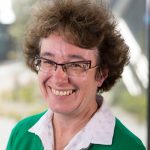
Dr Joanne Evans
Dr Joanne Evans is an ARC Future Fellow in the Faculty of Information Technology, Monash University, and co-ordinator of the Records Continuum Research Group, part of the Faculty’s Centre of Organisational and Social Informatics. Her research relates to the design and development of recordkeeping and archiving systems, with particular emphasis on recordkeeping metadata models, interoperability and sustainability. She is particularly interested in exploring the requirements for archival systems in community environments using inclusive systems and research design approaches.
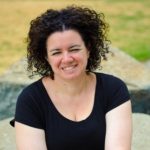
Shannon Faulkhead
Shannon Faulkhead is a Senior Research Fellow with Monash Country Lines Archives researching the use of 3D animation in preserving an intergenerational learning of language and knowledge that is in danger of being lost. She is a Koorie woman from Mildura and has worked for nine years at the Koorie Heritage Trust Inc. Her research concentrates on the location of Indigenous Australian peoples and their knowledge within the Australian society and collective knowledge.

David Fricker
David is the Director-General of the National Archives of Australia where his strategic focus has been on the whole-of-government transition to ‘digital continuity’ in records and information management; expansion of preservation capability for paper, audio-visual and digital records; acceleration of the declassification of sensitive archival documents; and the exploitation of emerging technology to enhance the public’s access to archival resources.
David has been an active member of International Council on Archives (ICA) since 2012, and became President of the ICA in October 2014. In 2015 he was appointed by the Director-General UNESCO to the position of Vice-President of the UNESCO Memory of the World International Advisory Committee.
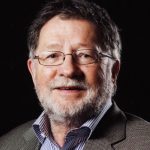
Frank Golding
Frank Golding is a researcher, freelance writer, and activist in child welfare. He is a Life Member (2015) of Care Leavers Australasia Network (CLAN), and currently its Vice-President. In 2017 Frank has been appointed as an Honorary Research Fellow in the Collaborative Research Centre in Australian History at Federation University to further his research into institutionalised child and family welfare and its ideological rationale. This interest is underpinned by his own childhood from aged 2 to 15 as a Ward of the State of Victoria (1940 to 1953) spent in institutions and foster families.
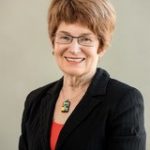
Professor Cathy Humphreys
Cathy Humphreys is Professor of Social Work at University of Melbourne. She was a chief investigator for the Who am I? research (2008-12 and has continued as a consultant with the Find and Connect web resource. She has two major strands of research: family violence with a focus on the issues of child abuse; and out of home care with a specific focus on family contact and mental health issues.
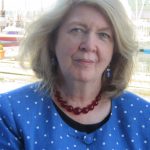
Margaret Humphreys
Margaret Humphreys CBE, OAM is a social worker and author from Nottingham, England. In the late eighties she investigated and brought to public attention the devastating impacts of British child migration schemes and founded the Child Migrants Trust to support survivors and their families. Author of the best-selling book, Empty Cradles (1994), which was later turned into a movie, ‘Oranges and Sunshine’ (2011), her campaigning has lead to formal apologies from Australia and Britain, and the establishment of support schemes to facilitate family re-connection. Her advocacy for Former Child Migrants and support for reclaiming their personal and public history continues.

Dr Rae Kaspiew
Dr Rae Kaspiew is a Principal Policy Adviser on the Policy Reform team in the Transformation Officer within the Department of Human Services (DHHS). She is managing the work of the Evidence team supporting a program examining Out of Home Care Reform, under the DHHS Roadmap for Reform agenda. She is on secondment from the Australian Institute of Family Studies, where she manages the Violence and Families and Laws and Families research programs at the Institute. She has been involved in an extensive range of studies and is the lead author of two large scale evaluations of successive waves of reforms in family law (the 2006 and 2012 reforms). She is the lead author of the Institute’s 2015 report on elder abuse and is on the Advisory Group for the Australian Law Reform Commission’s reference on safeguarding the rights of older Australians.

Shelley Keevers
Shelley began her journey in foster care at 6 weeks old and remained in care until she reached 18. She was lucky enough to stay with the same foster family most of the time. Shelley has been involved with the CREATE Foundation for around 8 years, taking part in many things such as meetings with politicians, workshops, interviews with media for tv/newspaper/radio and meetings with DHCS in hope to make a change to children and young people that are currently in care and better their future. Shelley writes ‘I hope to see things that presented themselves as obstacles to me and others in care to be a platform for improvement and rectification.’
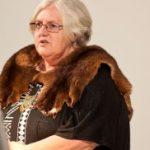
Aunty Diane Kerr
Aunty Diane Kerr is a respected Elder of the Wurundjeri Tribe. Aunty Diane is a Mother, Grandmother, Aunty, and, Great Great-Great Aunty. She has devoted many years to her local community as a mentor and foster carer. She has worked in various fields including child care, education, native title, stolen generation support, and other community work but her passion lies in the area of social, and emotional wellbeing of the Aboriginal communities. Aunty Diane is inspired by the women in her family. Her motivation is the resilience of her mother, grandmother and great grandmother. Working on Country makes her feel connected to her mother and grandmother. Her welcome is always done in their honour. That’s why she wears my possum skin, because that’s her mother’s name – Walert, possum. Today, she relishes the responsibility of guiding younger generations and works hard to uphold Aboriginal law in a modern, urbanised world.
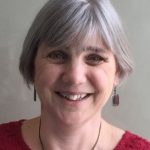
Dr Margaret Kertesz
Dr Margaret Kertesz is a senior research fellow in the Department of Social Work at the University of Melbourne. With a background in both historical research and social work, Margaret has worked in the Child and Family Welfare sector for two decades, both in out-of-home care service provision and as a researcher. She was one of the research team for the Who am I? research (2008-12), focusing on current recording practice in out-of-home care programs.

Professor Patricia Lundy
Patricia Lundy is Professor of Sociology at Ulster University, Northern Ireland. Her research interests are dealing with the legacy of human rights abuse, politics of memory and transitional justice. She has researched community-based ‘story telling’/ ‘truth recovery’ and also official police-led historical inquiries into conflict related deaths in N. I. She is particularly interested in ‘bottom-up’ participatory approaches. Her most recent work is a major study of historical institutional abuse in N. I. Patricia works closely with victims/survivor groups and the survivor-led Panel of Experts on Redress. The Panel’s primary aim is to give survivors voice to campaign for effective redress. The Panel has published a number of reports including – “What Survivors Want from Redress” and “A Comprehensive Framework for Historic Institutional Abuse”. Both reports draw on a series of workshops and extensive consultation with survivors. Patricia is an Executive Member of the Committee on the Administrative of Justice, a human rights NGO in Northern Ireland.
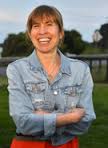
Dr Tiffany McComsey
Tiffany McComsey holds a PhD and MA in Social Anthropology from the University of Manchester, UK and a BA from New York University, USA. Her doctoral dissertation examined Aboriginal community development practices in Redfern during a time of significant government policy change and community disquiet (2005- 2007). During this time that she first met and worked with some of the Kinchela Men and other members of the Stolen Generations and their families. In 2011 she was engaged by the Kinchela Boys Home Aboriginal Corporation to assist with the implementation of the KBHAC Strategic Plan and in 2015 was appointed Chief Executive Officer by the KBHAC board.

Jennifer McConachy
Jennifer McConachy is a social worker with 25 years of experience in child and family welfare. She works for Berry Street and is currently introducing the Family Finding model in Victoria. She is working with Random Hacks of Kindness (RHoK) to solve the problem of recording and showing a graphic display of a child’s kith and kin (genograms can’t do this). When it is operational, the program will be an amazing recording tool that will entice people to want to record and to find family and friends of children who have been disconnected from them.
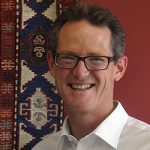
Professor John McDonald
John is a sociologist. He has held various leadership positions as dean, head of school, and research director over the past 20 years. There are three key drivers to his work: (1) opening up access to, and successful participation in, tertiary education for students from regional areas and low socio-economic backgrounds; (2) establishing collaborative research programs that are deeply engaged with partner organisations; and (3) community-university engagement. Among his key achievements have been: the creation of an early career researcher development program for the University of Ballarat that was subsequently rolled out at other universities across Australia; the establishment of the Collaborative Research Centre in Australian History to capitalise on the unique history and heritage in this part of the world; and the creation of a research collaboration with the Central Highlands Area Partnership to address critical issues affecting vulnerable children and families. John is passionate about the power of education to transform lives and communities.
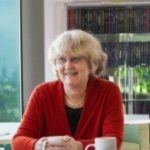
Professor Sue McKemmish
Sue McKemmish is Chair of Archival Systems, Monash University, and Associate Dean Research of the Faculty of Information Technology. She is also the founding Director of the Monash University Centre for Organisational and Social Informatics and lead it through its first decade of operation. She is engaged in major research and standards initiatives relating to the use of metadata in records and archival systems, information resource discovery and smart information portals, Australian Indigenous archives, and the development of more inclusive archival educational programs that meet the needs of diverse communities.
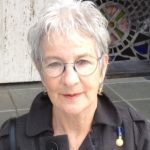
Dr Joanna Penglase
Dr Joanna Penglase is the co-founder of CLAN the national support and advocacy body for care survivors, which was instrumental in establishing the 2004 Senate Inquiry into Children in Institutional Care. In 2007 she was awarded the Order of Australia Medal for her advocacy work and she continues to support CLAN in an advisory capacity. With a long career in documentary television as a researcher, writer and interviewer, she now works as an editor and literary speaker. Joanna, who grew up in a Children’s Home herself, is the author of Orphans of the Living Growing up in ‘care’ in 20th century Australia, the only comprehensive account of both the system and the experience of institutional care in Australia.
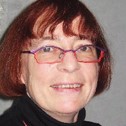
Barbara Reed
Barbara Reed is a consultant in the field of records, archives and information management with more than 25 years industry experience in Australia and the Asia Pacific region. Working with representative groups, she has been involved with the Federally funded Find and Connect project since 2011 producing a number of products, including the Best Practice Access Principles and Guidelines. More recently, she worked with community representatives to develop an unpublished draft consultation paper on records for the Royal Commission into Institutional Responses to Child Sexual Abuse.
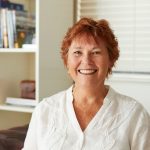
Cevrina Reed
Cevrina Reed is a care leaver who experienced out-of-home care in Wanslea, Parkerville Children’s Home and foster care in Western Australia. Cevrina is Vice Chair of the Board of Forgotten Australians Coming Together (FACT Inc), which is the governing body of Tuart Place, where she is also a participant. Cevrina experienced difficulties when applying for personal records in 2007 for use in the Redress WA scheme. The records she received were heavily redacted and gave no information about her four siblings, also in care. Cevrina still does not know the dates of her time in care nor does she have any useful medical information from her childhood.
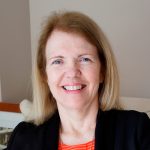
Jacqui Reed
Jacqui has been Chief Executive Officer of the CREATE Foundation since December 2007. She has over 20 years experience in child protection, out-of-home care, family services and community work and has undertaken social research and held several management roles. She has written not only policy, training manuals and research papers, but also a children’s book. Jacqui is an accomplished public speaker presenting at many national and international conferences. Jacqui firmly believes that children and young people, given the right opportunities, have the capacity to transcend their adversity and reach their full potential.
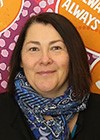
Narelle Rivers
Narelle is the Manager of the Family History Unit, which works with Link-Up organisations and the general public to support their Indigenous family history research. Narelle has worked across the ACT Government for eleven years as a case manager, project manager and a practice leader. Prior to this, Narelle worked in the ACT community sector for seven years. Narelle holds a number of qualifications which include an undergraduate degree in justice studies and a post graduate qualification in community counselling. Narelle also holds qualifications in training and assessment, project management, family history research and community development. Narelle grew up in Sydney and is a Darug woman, she has lived in Ngunnawal/Ngambri Country for 20 years.
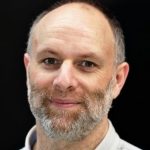
Greg Rolan
Following a 30-year career in IT, Greg returned to Monash to study community informatics and qualified as a librarian. Greg is now a doctoral candidate, investigating archival systems interoperability. His research comprises design-science investigations of systems interoperability; conceptual modelling in archival informatics; metadata standards-setting; and organisational/social factors in information systems design and implementation. As well as studying, Greg works as a Teaching Associate and Research Assistant at Monash University in the Faculty of Information Technology in the Centre for Organisational and Community Informatics.
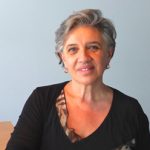
Angela Sdrinis
Angela Sdrinis is a personal injuries accredited specialist who has been practising in the area of institutional abuse for more than 20 years. Angela has been instrumental in developing a settlement protocol in claims for historical abuse involving the State of Victoria and other non-Government organisations. Angela was a Director of the In Good Faith Foundation between 2014 and 2016, an organisation dedicated to the recovery of victims of clergy abuse. Angela has made submissions on institutional abuse to the Senate Inquiry into Forgotten Australians, the Victorian Parliamentary inquiry into the handling of criminal abuse claims by religious and non-Government organisations and to the Royal Commission into child sex abuse. Angela has been called to give evidence before two Senate Inquiries on the abuse of children in institutional care and before the Victorian Parliamentary Committee. Angela has been invited to participate in Royal Commission Round Tables on Civil Litigation and Redress. Angela is a member of the Knowmore Subcommittee of the NACLAC Board. The Knowmore Legal Service was established in 2012 to support people engaging with the Royal Commission Into Child Abuse. Angela Sdrinis Legal has represented numerous witnesses giving evidence at the Royal Commision into Child Abuse.

Amanda Shaw
Amanda Shaw commenced as the Guardian for Children and Young People in December 2015. Prior to that Amanda held the position of Senior Advocate within the Office of the Guardian since 2007. Some of her achievements include leading systemic inquiries into children’s experiences of their relationships with statutory case workers and children’s experiences of sibling contact, developing and implementing youth participation models within the Office and speaking at conferences about the experiences of children in care.
Amanda has a long career working with children, young people and families in South Australia and Ontario, Canada. She has a passion for children’s rights, youth affairs, policy and research and is a former Vice President of the Youth Affairs Council of SA. Sport is a major feature of her family’s life and when not working, Amanda will be seen at basketball courts and football ovals across Adelaide.
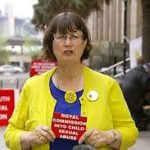
Leonie Sheedy
Leonie Sheedy is the co-founder and CEO Care Leaver’s Australasia Network (CLAN), and leads their campaigning, support, and research work. She is a tireless advocate for people who grew up in Australian orphanages, children’s Homes, foster care and other institutions and has been at many of the current Royal Commission’s hearings supporting survivors. In 2007 she was awarded the Order of Australia medal, and in December 2017 was appointed by the PM Malcolm Turnbull to the advisory council to help shape a $4 billion national redress scheme for survivors of institutional child sexual abuse.
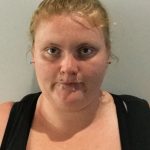
Isla Swanston
My name is Isla Swanston, I’m 24 years old and a mother of four beautiful children. I lived in the out of home care sector my whole life. My care experience ranged from kinship care, foster care and residential care units. I was expelled from school at the end of year 7 and I never went back until I was a mother and pregnant with key second child, I completed my VCE, since then I have also my certificate in aged care and home and community care, my disability certificate, as well as other short courses. I’m linked in with the CREATE Foundation and have been for 11 years, I enjoy my time with CREATE, as I like to give young people in out of home care a voice, to make a change in the care sector.
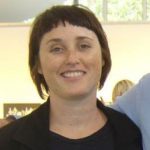
Kirsten Thorpe
Kirsten Thorpe is Manager, Indigenous Services at the State Library of New South Wales. She is a descendant of the Worimi people of Port Stephens, New South Wales. Her professional and research interests relate to the return of archival sources of materials to Aboriginal and Torres Strait Islander communities. She is also interested in the opportunities that the digital domain presents for Aboriginal and Torres Strait Islander communities to be actively involved in managing their cultural heritage resources.
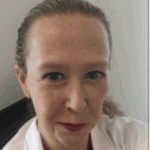
Michelle Tolliday
Michelle Tolliday is a Performance Audit Manager at the Victorian Auditor General’s Office. She has had a diverse career, with a strong background in Information Management. After getting a Bachelor and Honours Degree in Biochemistry, Michelle lived in Germany for several years—working as a business language trainer with large multinational corporations. She returned to Australia in 2003 and completed a Masters in Information Management and Systems—and it was during this time that her passion for championing public sector accountability through improved information management began to grow. Soon after starting her Masters, Michelle joined the Public Record Office Victoria as its Manager for Education and Training, and in 2008 she began work at the Victorian Auditor General’s Office. Many of the audits that Michelle has been involved with reflect the central role information management plays in a transparent and accountable government, including: Maintaining the Integrity and Confidentiality of Personal Information, State Trustees Limited: Management of represented persons, , Access to public sector information, and Managing public sector records.
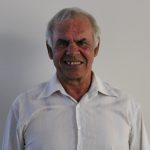
Michael Welsh
Michael Welsh is a Wailwan man from Coonamble in New South Wales and a survivor of the Kinchela Boys Home. As a child, Michael was forcibly removed from his mother and five of his siblings. As an adult, he was involved in establishing some of the first Aboriginal organisations in Coonamble. He has been a member of the Kinchela Boys Home Aboriginal Corporation (KBHAC) since 2009 and held the position of Treasurer since 2011.
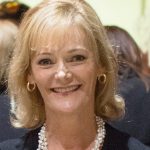
Dr Philippa White
Dr Philippa White (also known as Pip) is the Director of Tuart Place, a resource service for people who experienced out-of-home care during childhood. During 12 years of working with survivors of institutional child abuse Philippa has witnessed significant changes in the release of records to care leavers, including the introduction of the FOI model in WA. Between 2008 and 2011 Philippa operated the primary support service for care leavers applying to the Redress WA scheme. Particular problems in the release of records emerged during this scheme, providing some valuable ‘lessons to be learned’ for the planning and design of future redress processes.
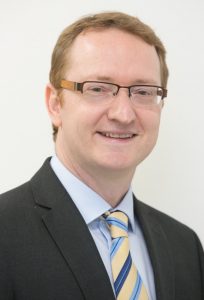
Professor Jon Whittle
Professor Jon Whittle is the Dean of the Faculty of IT at Monash University. He is a world-renowned expert in software engineering and human-computer interaction, with a particular interest in digital health research. Recently arrived from the UK, he was previously Head of School of Computing and Communications at Lancaster University, where he led eight multi-institution, multi-disciplinary research projects. These included digital health projects such as: digital self-management tools for adults with autism, interactive data dashboards to support clinical decision making for COPD, and wearable devices for anxiety reduction. He is well-known in the software engineering research community and will chair the major conference in the field (International Conference on Software Engineering) in 2019. When in the UK, he was a Royal Society Wolfson Merit Awardee – this is a prestigious award given to outstanding and respected scientists in the UK. Professor Whittle is an experienced research leader, having been the Principal Investigator of projects totalling over £8M in recent years.

Associate Professor Jacqueline Wilson
Jacqueline is an Associate Professor in the Collaborative Research Centre in Australian History at Federation University Australia. She is a graduate of Monash University (PhD History) and Latrobe University (BA Hons), where she was awarded the David Myer University medal. Jacqueline is a former ward of the State of Victoria and an activist and advocate for Care Leavers in Australia. This underpins much of her research which is concerned with historical justice, critical heritage and experiences of State care, citizenship and welfare systems.
